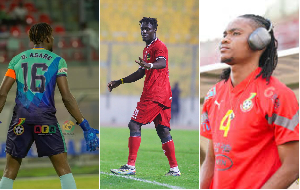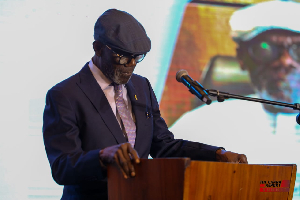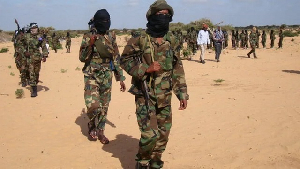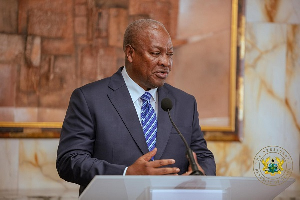Wa, Nov. 4, GNA - Dr Nicholas Westcott, British High Commissioner has advised Ghanaian youth to invest the money they mobilize to travel through unapproved routes to Europe in developing their skills to enable them make money at home.
He said although countries like the US and Great Britain used migrants labour during the Industrial Revolution to develop their economies, the trend had now changed.
Dr Westcott observed that uncontrolled migration could lead to political tension and violence in some countries. He gave the advise during a lecture on: "Economic Growth and Migration in Ghana: Lessons from Britain in the Past," at the Wa Campus of the University for Development Studies (UDS) as part of his two-day familiarisation visit to the Upper West Region. He cautioned the students to avoid the temptation to use dubious travelling agents and contact people to travel. "The temptation that if I can get to Europe I will make money is not always the case. You may end up loosing your money and your life. Ghana is a stable and peaceful country so you can work and make money here if you so wish," he stressed.
Dr Westcott said Britain was working with the Ghana Immigration Service and some non-governmental organisations to educate prospective travellers to the UK and Europe on the need to acquire genuine travel documents.
Touching on poverty, he said conflicts was one major of the problem since it impeded development and expressed the hope that Ghana would continue to enjoy peace for accelerated development.
Professor Kaku Sagary Nokoe, Acting Vice Chancellor of the University said the establishment and maintenance of academic linkages was very vital for the growth of any university and appealed to the High Commissioner to help the UDS to expand its connections in the UK. Operating with reduced faculty development funds, the university also needed more support from the government and European partners for training, scholarships, attachments and students and staff exchange programmes, he added.
Dr Westcott paid a courtesy call on the Regional Minister Mr. Mahmud Khalid and pledged his country's commitment to continue to support the Education and Health sectors of Ghana's economy. He said Ghana received 80 to 90 million pounds sterling as development aid from Britain annually, citing the free maternal health care programme as one of such assistance. Mr. Khalid appealed to the British Government to extend its support to include capacity building for rural entrepreneurs to enable them turn out products that would be competitive in the markets and in the end reduce poverty.
Regional News of Wednesday, 4 November 2009
Source: GNA












